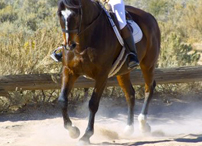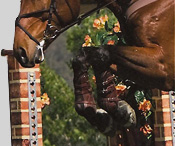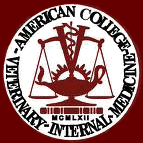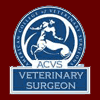



KEEPING COSTS DOWN

1. A letter from the Vet
2. Practical thinking about Hay
3. Preventive Care
4. Education
Dear Valued Clients,
Let’s talk turkey. I wake up every morning and listen to the economic news and wish I hadn’t. I imagine you all feel the same way, and that’s the point – we’re all in this leaky boat together. Dealing with animal care poses some particularly difficult challenges for you as horse owners and me as a veterinarian because we all want to do the best for our equine friends, but I can’t do it for free, and some of you are really strapped for funds right now. I’ve thought hard about how to help you continue to be able to take the best care of your horses while also keeping my business healthy. Here’s what I came up with:
I pulled out my dissection kit and used it on our business – streamlining costs so savings can be passed on to you .
We’ve gone on line! Mail us your e-mail address andreceive a monthly educational e-newsletter - the more you learn about equine health care the more you can handle on your own.
I carefully calculated the expense of running my truck and am
reducing all call fees 10%.
I did not institute the usual cost of living price increase this year:
no price increases in ’10.
I’m offering 5% discount for all cash transactions.
The economic boat may be leaky, but it is far from sinking. Here’s to many years ahead with healthy horses at our sides,
Dr. Chrysann
Practical thinking about hay. One of the largest outlays of money we face is in the purchase of hay. In addition to the health benefits, those large tractor tire feeders reduce hay loss to wind, weather, and stomping feet. When buying hay, the least expensive is not always the cheapest. Most horses maintain good health and body condition when fed high quality hay at 1-2% of body weight daily (10-20 lb hay/1000 lb horse) without additonal supplements. Call me if you have any questions about chosing the right hay for your horse. You may regret buying poor quality hay at a few dollars less a bale when you consider the "empty calories" you are feeding, the waste that your horses won't eat, the vet bills to treat colic or remove oral foxtails, and the extra expense buying grain mid-winter when your horses are losing weight.
Preventive care. Look for ways to avoid unexpected expenses. That flu/rhino shot in the fall can save a much larger vet bill when unvaccinated horses come down with respiratory disease. Building a safe feeding environment represents a long term savings over the life of your horse. Deworm you horses regularly (at least 4 times yearly). Parasites continue to be a contributing factor in many cases of colic. Here's one I see all the time: unnecessary exenses for disposable bandage materials. Prepare a first aid kit with reusable bandage material! Cotton quilt wraps, a set of stable bandages and a box of Kotex are clean, washable bandage materials that will save many dollars.
Education. Subscribe to a reputable equine publication and read it! I recommend The Horse – find it online at TheHorse.com. It is supported by the American Association of Equine Practitioners, and offers many online courses for free. The more you know about your horse's veterinary care, the better you are able to make informed decisions about when you can handle problems on your own and when to ask for my help. This saves you money, and improves your horses well being. After all, that's what we all want. I am here to help you be a better care giver to your horses. Let me know how I can help you help them.
PO BOX 60730
RENO NV 89506
EMERGENCY (775) 742-2823 OFFICE (775) 969-3495
FAX (775) 969-3923




